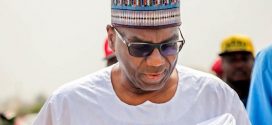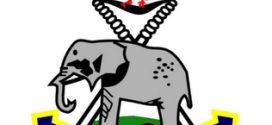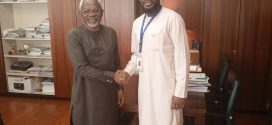Editor-in-Chief
TELL Magazine
He has been celebrated for years by his army of acolytes as the grandmaster of political strategies.
His reputation was further burnished, and his place atop the country’s political pyramid confirmed, by the historic triumph of the All Progressives Congress (APC) in the 2015 general elections. He led the political forces that routed the Peoples Democratic Party, PDP, after 16 dominant years in power. And he ‘put’ Muhammadu Buhari in Aso Rock after serial failures in previous presidential elections.
Then Tinubu himself became a god. Literally. He was transformed from the Emperor of Lagos and Political Overseer of the South-west to the Capone of the APC; and given the grandiloquent title of national leader.
Which was strange. Why? The president is the undisputed leader of the party. Just as the governors are the leaders of the party franchises at the state level.
The only exception to this long- established convention is Lagos State in respect of any party Tinubu controls. The governor is his mentee and a mere surrogate in power. He owns all the political space, exercises absolute power and brooks no dissension of any kind. Any incipient threat to his dominance is ruthlessly nipped in the bud. While foolishly stubborn subordinates, like Governor Akinwumi Ambode, are discarded and banished to the political wilderness.
But the grandmaster is no longer looking majestic as his political calculations have gone awry. He’s being outflanked and stymied by forces beyond his control. Now consumed by angst, he’s weeping every day.
Those in Aso Rock, who call the shots for the party, are making him miserable and threatening to separate him from his ‘life ambition’. He has called them out as the “Cabal” around President Buhari and “Fifth Columnists” in his presidency. Having failed to bend them to his will through his usually generous financial pipeline, he has declared war on them.
Having made Buhari president, according to him, and expended his political capital defending his woeful administration in the last eight years, he had, in the very least, expected a coronation as his successor. But this is seemingly less likely every day. More so as he continues to double down on his accusations that some people in Aso Rock are determined to make him lose the presidential election.
He has said repeatedly that the fuel shortage, that has lasted months, and the new naira policy have been deliberately contrived to stoke public anger against the APC. And since he’s the party’s candidate, he may end up paying the price at the poll. Put simply, he’s afraid of losing the election and seeing his life ambition going up in smoke.
There are those who empathize with him, buying into his complaint that his campaign is being sabotaged from within the highest echelons of the party’s hierarchy and the presidency. Governor Nasir el-Rufai of Kaduna State stands out here. He has amplified Tinubu’s complaint about the cabal out to get him. The governor did some rounds of TV interviews, pushing the line that a few APC power brokers are bent on making the party lose the general elections. He struggled to exonerate the president, excusing him on the ground that the troublemakers around him were taking advantage of his good nature and “his desire to do the right thing.”
El-Rufai is a latter-day convert to Tinubu’s political cult. He was one of the northern APC governors, who scuttled the amateurish attempt by the cabal to steal the party’s presidential ticket from Tinubu and dash it to the Senate President, Ahmed Lawan.
Prior to embracing Tinubu’s political life ambition, he was a trenchant critic of his party’s national leader whom he had described as a political godfather with feet of clay. Sometime in 2018, he had attended an event in Lagos where he offered to avail anyone his method for dealing decisively with overbearing godfathers. He boasted that he had retired all the godfathers in his state. It seemed no one took up his offer.
And there are those who are gloating over Tinubu’s current travails in his party and his constant fumbling on the campaign trail. They say he had it coming to him, having prioritized his personal ambition over and above the nation’s interests by forging a political alliance with Buhari that finally propelled him to power with calamitous consequences for the country and the people.
In a conversation with top United States of America’s embassy officials in Lagos in 2003, he had described Buhari, who was running for president for the first time, as an “ethnic bigot and religious extremist” who would pose a danger to the country if he became president. How prescient his assessment has proven to be!
Ten years after painting him in such damning terms, he literally ate his words after salivating over Buhari’s mythical ‘12 million guaranteed votes in the North’. He calculated that Buhari would be his pathway to the presidency. He became heavily invested in Buhari’s first successful presidential run and had desperately wanted to be his running mate. That wish was blocked by more powerful forces then.
His loss of the second place on the ticket was more than compensated for by the avalanche of accolades poured on him following APC’s victory in 2015. His political stock grew exponentially. His transfiguration into a political god was complete. All he had to do was wait patiently for Buhari to pass the baton to him. He was undeterred even during the times the doors of Aso Rock were shut against him.
Now, his hitherto carefully structured plan to realize his life ambition is practically unraveling. He has not only to contend with strong political headwinds from his major opponents. He has instigated a civil war in his party. More to the point, he’s pushing back very hard against those in the party and the presidency, who’re standing on his way. And he’s taking no prisoners.
Campaigning in Uyo, Akwa Ibom State’s capital, he mocked the Buhari administration for its incompetence. He said “they don’t know the way, they don’t know how to think and they don’t know how to do.”
He was effectively campaigning for the opposition parties, a clear sign of desperation and lack of strategic thinking about how to get around the forces arraigned against him. Indeed, Tinubu, unbound, isn’t a pleasant sight to behold.
In a popular TV drama series, The Thorn Birds in the 1980s and ‘90s, one of the lead characters had said in an episode: “Desperate people make me nervous.” Tinubu’s desperation, his arrogant sense of entitlement, uncouthness and predilection to drench his opponents in vitriol are making lots of people nervous. And very many are beginning to question his fitness for the job he’s seeking.
He went to Ado-Ekiti, Ekiti State, and claimed that those who were against him want to scuttle the elections and emplace an interim government to succeed the present administration. This is a very weighty allegation. And coming from him, it cannot be dismissed as the ranting of a frustrated and angry man. Are there things he knows that the rest of us are not privy to? Or he has decided to go for broke, damning the consequences of his frontal attacks on his own party’s federal government. This doesn’t seem like a play of a grandmaster of political strategies.
So is the talk of interim government scaremongering, or a means of further discrediting the cabal? And by extension, making the presidency uncomfortable?
Interim national government in any form and for any reason at the twilight of the most unpopular government in the country’s history, is unconstitutional and an obvious red herring. It’s also impractical with elections around the corner.
Beyond his verbal assaults on his opponents, often without any provocation, his numerous gaffes, indicative of cognitive dissonance, are a growing concern even for those who are inclined to vote for him. He’s constantly being corrected and told what to say by his minders who surround him at every event.
He had decided that he wouldn’t debate with his opponents or attend town hall events to face scrutiny from journalists and the voters. And he hasn’t done a one-on-one interview with any journalist. He only attends events where his campaign council is completely in control of the proceedings.
But campaign he must. And so far, he has been a very sorry spectacle: talking gibberish; his tentative dance moves notwithstanding, showing signs of physical frailty; and supplying rich materials for skit makers and comedians. He’s become the subject of uncountable memes. The emperor always showing up without clothes.
He has unwittingly turned himself into a prime subject for debate and even wild speculations in these elections. Very few people remember what he’s promising to do, or what his election plank is about. He’s either venting against his own party and opponents, or insulting anyone whom he fancies at any moment.
Another of Tinubu’s dilemmas is whether to run on or against the records of the Buhari administration. On one hand, he says he will continue with Buhari’s legacies, whatever they are. On the other hand, he’s trying to distance himself from the president and his political baggage.
This is one balancing act that he’s finding difficult to execute. He has owned the credit for making Buhari president after his three failed attempts. He must equally own the responsibility for the administration’s abject failure.
Resolving the dilemmas dogging him and the controversies swirling around his campaign will surely test his political mettle in the remaining days before the elections. Despite the verbal missiles he’s been throwing at Aso Rock, the president joined his campaign in Nasarawa and endorsed his candidacy yet again. Whether the endorsement is real or otherwise remains to be seen.
What’s real is that the Buhari of 2015 is not the same today. He no longer commands the cult following in the North that he had enjoyed for years, and which helped propel him to Aso Rock.
So even if the endorsement is real, Tinubu can’t rely on Buhari’s mythical ‘12 million guaranteed votes’. Most of those voters have become thoroughly disenchanted with the president. They no longer see him as their leader and saviour. This has been affirmed by the protests that marked his recent visits to Katsina and Kano states. And this should worry Tinubu and his election strategists more than the alleged shenanigans of the Aso Rock cabal.”
 Hottestgistnaija.com
Hottestgistnaija.com




